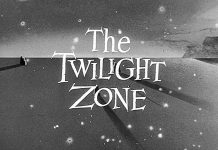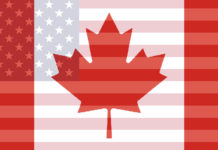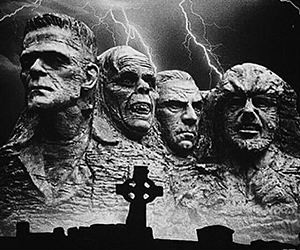In the Kingdom of Tonga
I first read about the “Y2K millennium bug” in 1990. Back in the dinosaur days of computers, memory was limited, so programmers reduced the four digits to denote the year to two digits. The year 2000 was a long way off, and the assumption was that everything would be replaced or upgraded long before the turn of the century. Most were but many “legacy” systems were still in operation throughout the world that were vulnerable to the Y2K problem. At midnight on New Years Eve 1999, all computer systems would rollover from 99 to 00. Some wouldn’t know whether it was the year 2000 or 1900, and that would cause … problems.
Here are some cases of Y2K problems found during simulated tests.
In New York, elevators froze. The elevator software believed that the elevators had not been maintained for 99 years so they shut down.
In Texas, all the cell doors in a state prison unlocked at the simulated time of midnight on 12/31/99.
Boeing reported that 750 of its airplanes were found to have Y2K problems, with more than 50 planes impacted to the point where they would not be able to fly.
Police dispatch systems, credit card systems, 911 systems, and oil pipeline pumping systems also went awry during testing with simulated Y2K dates.
With almost 10 years left for programmers to fix the problem … I promptly forgot all about it. Then one night, 8 years later, I was listening to Art Bell. That night’s topic wasn’t The Face On Mars or Mel’s Hole. A guy named Gary North was frantically talking about Y2K. With less than two years to go … the problem wasn’t even close to being solved. Everything was at risk. Banks, the railroads, our water supply, food distribution, communication systems, and most importantly … the power grid of the United States. Without computers we would be thrust overnight back to 1957. Without electricity … we’d find ourselves in 1857.
Gary North wrote, “The Y2K crisis is systemic. It cannot possibly be fixed. I think it will wipe out every national government in the West. Not just modify them-destroy them.“
He predicted that Y2K would result in 1.5 billion deaths worldwide. He said the worst place you can find yourself on New Year’s Eve 1999 is in a city … so get out now while you can. It was going to be The End Of The World As We Know It. That’s why he was known as “Scary” Gary North.
The Center for Strategic and International Studies held a forum in Washington, D.C., in June 1998 called The Y2K crisis: a global ticking time bomb? Here’s what some of the panelists had to say:
Senator Robert Bennett said, “… I don’t know whether this will be a bump in the road – that’s the most optimistic assessment of what we’ve got, a fairly serious bump in the road – or whether this will, in fact, trigger a major worldwide recession with absolutely devastating economic consequences.“
Edward Yardeni, Chief Economist and Managing Director, Deutsche Morgan Grenfell, “Could it be six months of major disruptions to our computer systems? Absolutely. Could it be an entire year? Absolutely. Even if we fix everything in our country, even if we all together get alarmed about it and get the message out and make this the top priority that it needs to be … even if we did that, the rest of the world would still be in trouble.“
Peter de Jager, creator of the Year 2000 Information Center said, “If today were December 31, 1999, and our systems were in the current state they are in today, tomorrow our economy worldwide would stop. It wouldn’t grind to a halt; it would snap to a halt. You would not have dial tone tomorrow. If tomorrow were January 1, 2000. You would not have air travel. You would not have Federal Express. You would not have the Postal Service. You would not have water. You would not have power – because the systems [would be] broken.“
It was starting to look like Scary Gary had some company.
Throughout 1998 and 1999 my wife and I continued to read about the Y2K problem. We were more than a little interested because sometime in the first week of January 2000 … our baby was going to be born.
For Y2K the American Red Cross suggested everyone be prepared for the possibility of some disruption. Fill up your gas tank, have a good supply of cash on hand if the banks go down, and stock up on cooking fuel, nonperishable food, and water.
No one in my family believed anything would happen. We were the only ones making any preparations for the possibility that something might happen. They made fun of us because we had a well stocked pantry, a couple of drums of water, and some extra propane tanks for the outdoor grill.
There were some serious crazies out there who didn’t know the difference between possibility and probability. They were ready for the werewolves to boil out of the cities and ravage the countryside. I though it would be neat to have one of those wind-up radios in case the power went out. I was pulling out my wallet to buy one when the salesman told me the Anti-Christ was alive … Right Now … and living in Indianapolis. That was a deal breaker for me so I ordered one from The Internet instead.
On New Year’s Eve we watched CNN as natives of the South Pacific island of Tonga sang a welcoming hymn as the Millennium made its debut along the international dateline. New Zealand, Australia, and Japan all made it to the new year without a problem. By the time midnight arrived at our house, the lights stayed on, so we turned them off and went to bed. A few days later our son was born and for us… it really was The End Of The World As We Knew It. It was better.
There had never been a fixed deadline in the history of computers. Y2K had a deadline and it cost 600 billion dollars to fix it.
There isn’t deadline to “fix” Peak Oil, Peak Water, Peak Population, and Global Climate Change. There are only tipping points we’ll not know if we’ve reached them … until we’ve passed them. And the solutions are not going to cost a measly 600 billion dollars. Our civilization is going to have to completely change how we do just about … everything. For every day “our leaders” don’t talk about these things … the landing’s going to be harder than it has to be. And right now it looks like it’s going to be a crash landing for everybody.
If they’re not going to talk about it … we have to. This time it’s The End Of The World As We Know It … for real.
If we’re lucky … I mean really lucky … maybe … just maybe … we’ll end up living as well as they do in the kingdom of Tonga.
In the Kingdom of Tonga September 21, 2010













